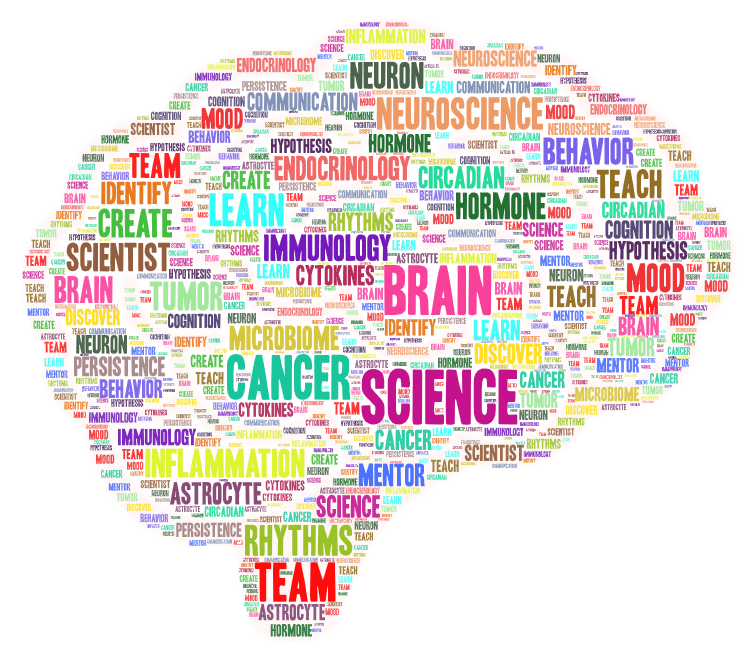Circadian rhythm disruptions are prevalent in cancer patients and are associated with reduced quality of life and survival. This project seeks to test the hypothesis that chemotherapy-induced inflammation inhibits the function of the master clock (suprachiasmatic nuclei) leading to fatigue.
Social determinants of chemotherapy side effects (Primary Collaborator: Erica Glasper)Social support is a consistent and robust predictor of behavioral side effects of chemotherapy (e.g., cognitive impairment, fatigue) in cancer patients. This project seeks to determine the biological mechanisms by which social support attenuates fatigue after chemotherapy in a mouse model.
Tumor effects on brain microglia
Tumors outside of the brain can cause neuroinflammation within the brain, independent of cancer treatments, which has consequences for brain health and behavior. This project seeks to identify the role of microglia in this phenomenon.
Count what is countable, measure what is measurable, and what is not measurable, make measurable.
-Galileo Galilei


